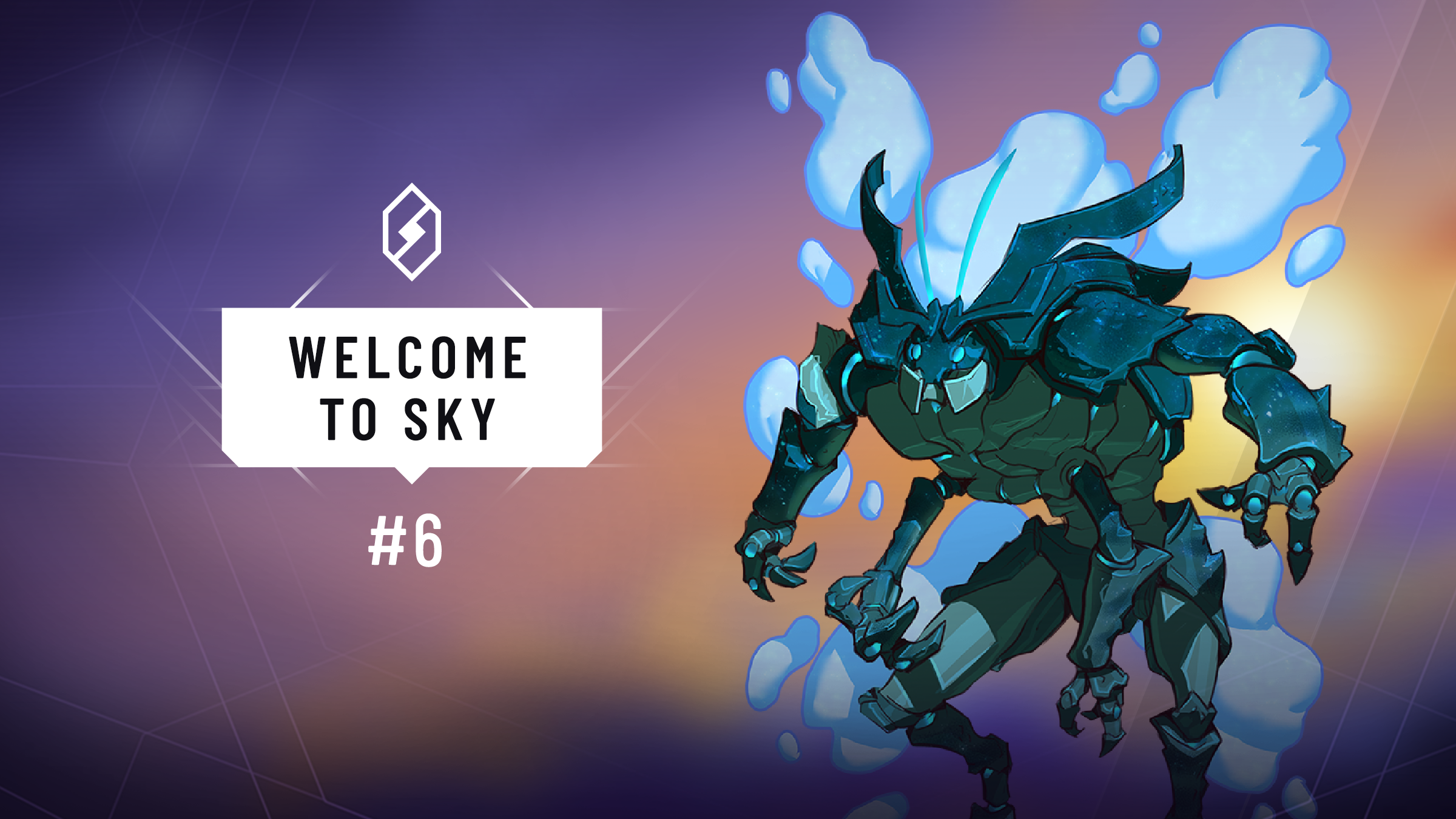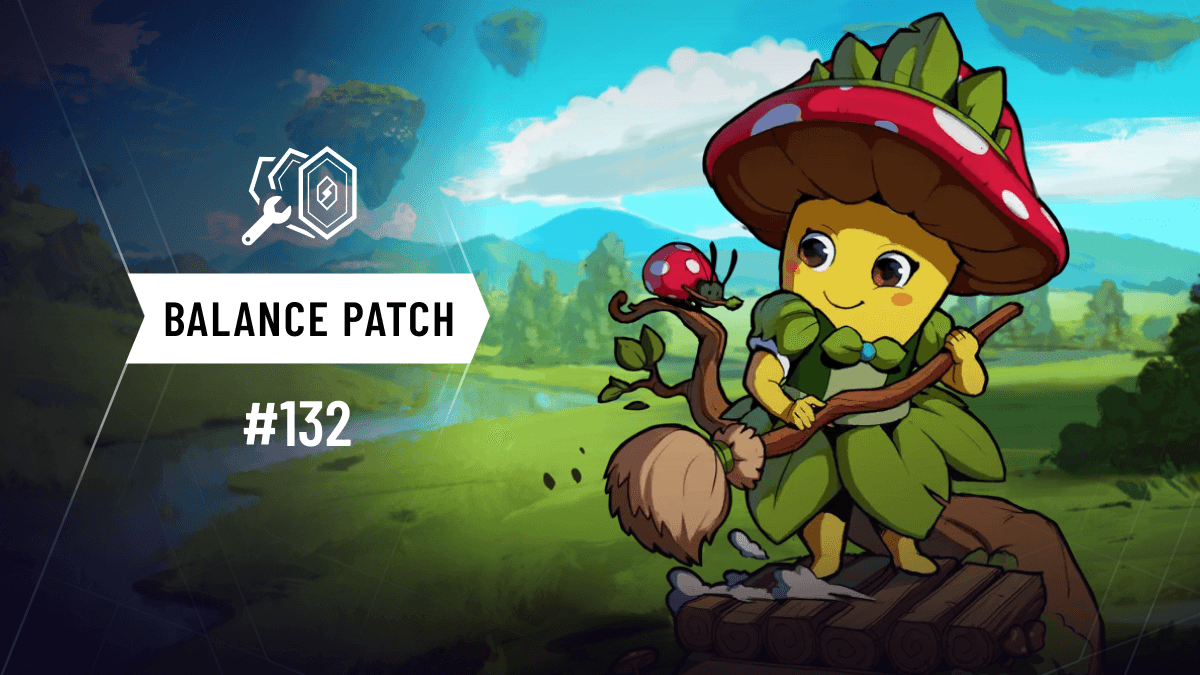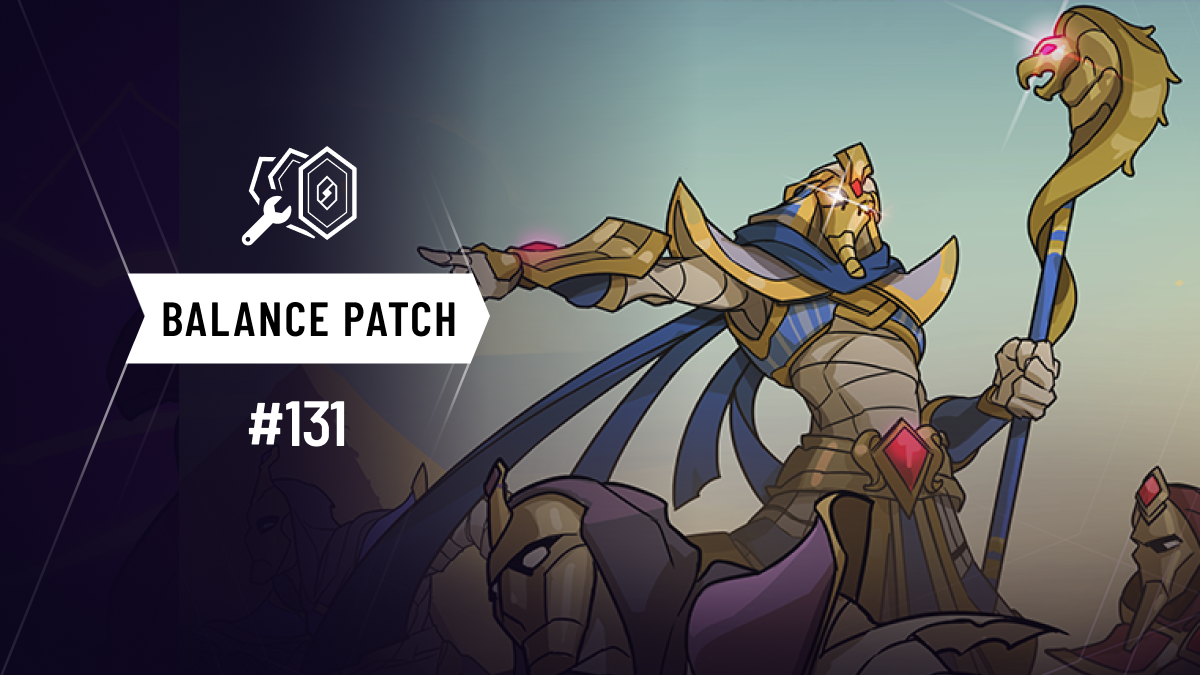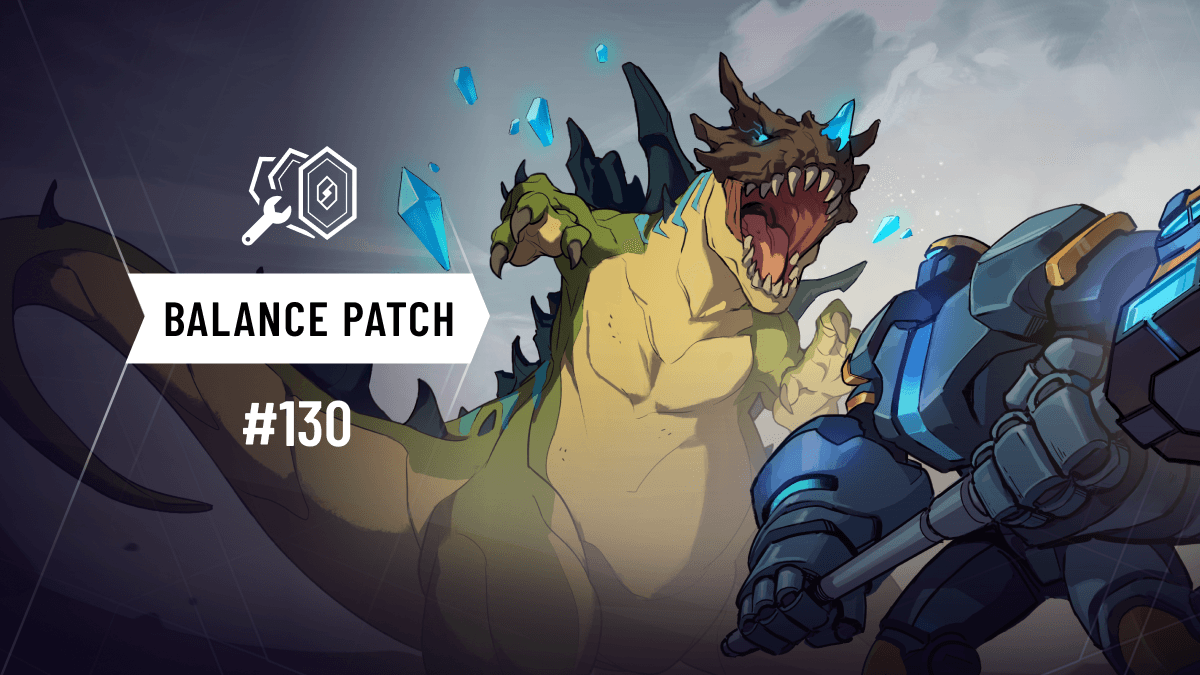Welcome to Sky #6: Discovery Mode

The first game mode you’re likely to experience in SkyWeaver is our Discovery Mode. In Discovery, you get to play decks made of random cards, giving you the chance to experience a wide variety of cards and Prisms, without having to spend any time deckbuilding - just choose your Prisms and start playing.
With games typically being quicker than Constructed games, and the randomized nature of the games themselves, Discovery offers a fun and quick SkyWeaver experience that’s different each time! So let's dive right in to the basics of the game mode, and what you can do to get an edge over your opponents and become a Discovery Pro!
Post 1 - The Basics of SkyWeaver
Post 2 - Player Actions
Post 3 - Keywords
Post 4 - Enchantments
Post 5 - Prisms
Post 6 - Discovery Mode
Post 7 - Elements of SkyWeaver
Post 8 - Constructed Deckbuilding Part 1
Post 9 - Constructed Deckbuilding Part 2
Post 10 - Top Cards of 2019 Part 1
Post 11 - Top Cards of 2019 Part 2
Post 12 - Top Cards of 2019 Part 3
Post 13 - Introducing Intellect
Getting Started
As mentioned in our Prisms Overview, you’ll start with only Strength unlocked, and as such, will only be able to play Strength Discovery Decks. The Strength Prism is a great place to start, as its specifically designed to be effective and easy for new players to use in Discovery, with a greater focus on powerful, high stat Units, and damage dealing Spells, and less on Units with attached Spells and complex effects.

As you level up, you’ll unlock a new Prism every 5 levels, until you have all 4. You’ll also instantly unlock a Prism if you purchase a card from our beta shop that belongs to it, or otherwise obtain one through a trade, gift, etc.
When playing Discovery, you’ll only play against other Discovery mode players - so no need to worry about getting stomped by Constructed decks, or people with bigger collections than you. Discovery has its own leaderboard you can fight your way up and prove yourself a master of the Discovery game mode.
Picking Your Prisms
Within Discovery mode, you don’t have nearly as much control over your deck as you would in Constructed. The only thing you get to choose is what Prism(s) to start a match with. As a result, a big component of success in Discovery is identifying which Prism(s) have the best cards for Discovery games, as well as which Prism(s) you’re best at playing with. Unlike when building a Constructed deck, where single Prism decks are 20 cards, and dual Prism decks are 30, in Discovery, both single and dual Prism decks are equally sized at 25 cards.
Strength is a great Discovery choice, as it is designed to have good baseline Discovery cards, with lots of high health and high power units, and damage-dealing spells for killing off enemy units. Heart is also fairly strong, as its Banner cards and death effect units can help you gain the advantage early, and keep you from falling behind. Agility is another good choice due to its high-tempo board units and removal, and Intellect has an excellent mix of high-tempo offensive units as well as potent removal options.

Wisdom is often at a disadvantage because slower late-game cards, which Wisdom excels at, often have less value in the Discovery mode than in Constructed mode, as Discovery games are more focused on Unit to Unit combat and Spells which can kill units, allowing you less room to set up combos, thus making some of Wisdom’s standout cards like Etherwail, Sky Phoenix and Arcadeum Mask less valuable here than they are in Constructed. This isn’t to say such cards can’t work in Discovery, but if you fall behind on tempo, they won’t be as effective at helping you pull back ahead, as they’re more resource than tempo-focused.

It's important to note that currently, which cards are in any given Prism, as well as the cards themselves, will frequently change as we work on balancing and tuning them, which means the Discovery metagame offers a constantly-evolving experience. So you’ll want to regularly check up on what cards exist in given Prisms, and how they can influence the potential makeup of your Discovery decks.
Strategy Tips and Tricks
If you want to become a Discovery pro, it can pay to familiarize yourself with some of the best strategies and advice from those who’ve been playing it extensively already.
Ensure You Have a Strong Opener
Discovery is a very tempo-focused game mode, meaning that whoever can get the lead in terms of Units and capitalize on it is typically favored to win. For this reason, you’ll typically want to keep as many early-game/low-cost cards as you can from your opening seven-card mulligan. Ideally, you want to aim to have at least one card to play each turn for your first three to four turns. As mentioned in our first post, the game will actually recommend its “best” four early-game cards via outlining them in purple, attempting to give you strong plays for the first 3-4 turns.
Focus on Units and Board Control
In Discovery, the player who wins is generally the one who can get more Units and keep them alive. You’re less likely to have as many removal Spells, Guard Units, and healing effects as you would have in Constructed, since you have no control over the deck you start with, so generally, you want to focus on keeping as many of your Units alive and destroying as many of your opponents Units as possible, thus denying them “control” of the board, and letting you deal more damage over time. If you focus on attacking the enemy hero too much, you may give your opponent the opportunity to counterattack with their own Units, and lose control of the board as a result.
Use Your Hero Aggressively
As an extension of the previous tip, whenever you have the choice between using a Unit to attack and destroy an enemy Unit, and using your Hero, it is typically correct to use your Hero, even if it means taking 5+ damage when attacking the enemy Unit. Obviously, you’ll need to judge this carefully, and if you have low health, you probably want to conserve it, but early-game, it can often be correct to do things like attacking a 3/2 twice with your hero, taking 6 extra damage, rather than attacking it with a Unit and compromising your own Unit’s health. In the example below, it is far better for us to use our Hero to destroy our opponent’s 4/2 Unit, and keep our own 3/2 Unit alive, rather than keeping 4 more health on our Hero.
Check Your Deck!
Thanks to our new deck checker feature, by pressing the D key on PC, or clicking on your deck at the right, you can pull up a list of all the cards currently in your deck, allowing you to get a sense of what you’ve got to work with. Alternately, you can avoid doing this for the fun of not knowing what you may draw, but if you’re aiming to play Discovery as competitively as you can, knowing the cards your deck contains will give you a huge advantage.
That's all for this post, check back soon for more SkyWeaver info!
Lethal Puzzle
See if you can figure out how to defeat your opponent using the game state presented below, in just one turn! Solution will be in the next post!
Hint: Keep in mind that Justice might discard a card from your hand if you’re not careful! Also, any cards Hydrate might draw you are unnecessary to solve this puzzle.
The solution to our last post's lethal puzzle is also right below! Congratulations to everyone who solved it!
Next: Post 7 - Elements of SkyWeaver
To chat with me and the rest of the Horizon Games team & our community, join our Discord server! Subscribe to our subreddit to share your ideas, and follow the SkyWeaver account on Twitter if you just want to say hey!
If you haven't already, be sure to sign up to become a SkyWeaver now and to join our waitlist to be invited into our private beta and check out all these new features for yourself.
Check back here again soon, and to get notified on our latest blog posts, subscribe to our newsletter.

Recent Posts














